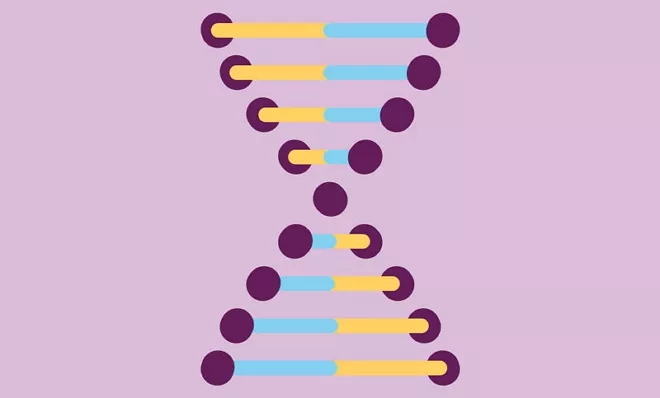Nature's hot comment: CRISPR efficacy is "threaten" by immune response!
Nature's hot comment: CRISPR efficacy is "threaten" by immune response!
January 11, 2018 Source: Biological Exploration of: Flora
Window._bd_share_config={ "common":{ "bdSnsKey":{ },"bdText":"","bdMini":"2","bdMiniList":false,"bdPic":"","bdStyle":" 0","bdSize":"16"},"share":{ }};with(document)0[(getElementsByTagName('head')[0]||body).appendChild(createElement('script')) .src='http://bdimg.share.baidu.com/static/api/js/share.js?v=89860593.js?cdnversion='+~(-new Date()/36e5)];On January 8th, a study revealing that "immune system interferes with CRISPR to achieve disease treatment" attracted the attention of Nature. Although genetic editing is called “century discoveryâ€, it has brought many surprises to many diseases and biomedical research. However, it faces many risks and unknowns, including the patient's own immune response.

Image source: Nature
The CRISPR gene editing technology has been a research hotspot since 2013 and has high hopes for disease treatment. Now, the latest study published in bioRxiv (not yet peer-reviewed) reveals that the body's own immune system affects the effects of CRISPR-based gene therapy. This risk can lead to treatment failure and even other side effects.

Nature journals comment on this latest study
1. What is CRISPR/Cas9?
CRISPR/Cas9 is naturally found in most bacteria and archaea and is a natural immune system used to fight invading viruses and foreign DNA. The key to this system is that the Cas enzyme is responsible for cleavage of specific DNA sequences under the guidance of a guide RNA (gRNA).
In the past two years, scientists have used this technology to achieve gene deletion, insertion, activation, large fragments and chromosome knockout. Thanks to these operations, CRISPR technology is correcting disease-causing mutations, finding the necessary genes for cancer immunotherapy, and solving them. A number of breakthroughs and achievements have been created in areas such as key problems in organ xenotransplantation.
2, the latest research: Cas enzyme triggers immune response
However, Stanford University's pediatric hematologists Matthew Porteus and Kenneth Weinberg led the team to discover that exogenous Cas9 protein triggers a long-lasting immune response. They analyzed blood samples from 22 infants and 12 healthy adults to test the immune system's response to the two most commonly used Cas9 enzymes.
The results showed that 79% of the subjects had antibodies against the SaCas9 enzyme (derived from Staphlococcus aureus bacteria), and 65% of the participants expressed antibodies against the SpCas9 enzyme (derived from Streptococcus pyogenes).
In a similar study, 46% of 13 adults developed T cells that attack the SaCas9 enzyme. Although no similar immune response was found in other types of Cas9 enzyme assays, the researchers say this may be associated with limited testing criteria.
This means that specific antibodies in the body bind to the Cas9 enzyme in the blood, preventing it from playing an editorial role. T cells that target the Cas9 enzyme destroy cells that express the protein, thereby destroying the "corrected" cells, reducing the efficacy and possibly triggering a more severe immune response.
3. Does CRISPR treat diseases? Not so simple
Although the potential of CRISPR is great, it faces many unknowns. In August last year, the Zhang Feng team published a report in the Nature Journal that differences in individual genomes may hinder the Cas9 enzyme from acting on the correct genetic targets, thereby undermining the ability of CRISPR technology to accurately edit the human genome. Genetic variation can make the CRISPR system unable to edit the target DNA, even editing the wrong site.
In addition to the differences in genomes, there are also individual differences in the immune system. However, the research community is relatively less concerned about the risk of immune rejection behind CRISPR.
In the field of gene therapy, many patients need to screen the immune system for viral vectors in advance of treatment. Therefore, Intellia Therapeutics, a US-based company dedicated to genetic editing, is using rodent and primate models to assess the impact of the immune system on CRISPR therapy.
4, not "splashing cold water"
In 2016, Matthew Porteus led the team to complete the CRISPR gene editing technology for the treatment of sickle cell anemia - they collected stem cells from patients, used CRISPR to correct genetic mutations that caused sickle cell anemia, and then returned them to normal ( Stem cells that produce normal red blood cells are returned to the mice. Because the editing work of CRISPR occurs outside the body, this treatment strategy seems unlikely to be interfered with by the immune system.
Now, Matthew Porteus hopes that this latest study will make everyone pay attention to immune rejection. He believes that there is a potential solution to circumvent this risk—developing an attack that does not infect the human Cas9 system; transforming the Cas9 enzyme from the immune system.
References: 1) How the immune system could stymie some CRISPR gene therapies
Dental Portable X-Ray,Handheld Dental X-Ray,Portable Dental Xray Unit,Portable Dental X-Ray Unit
Rolence Enterprise Inc. , https://www.rolencedent.com
